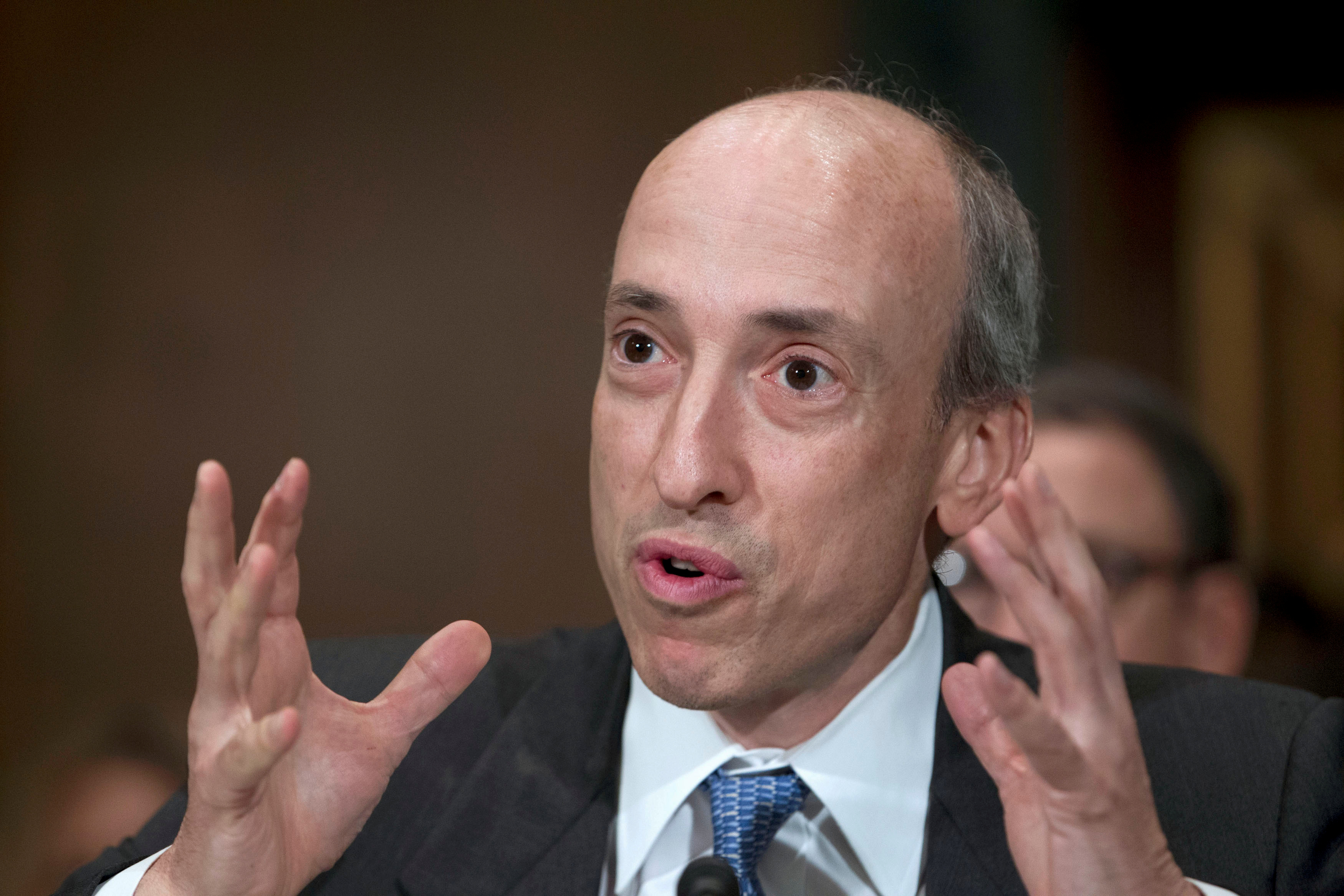The regulator who shook up crypto now has his eye on how algorithms might influence investors.
You don’t have to look far to see how algorithms and machine learning can influence a market: Ask your kitchen smart speaker to play some Taylor Swift, and before long a computer formula will likely rack up songs by another artist her fans tend to like.
What if a similar bit of black-box code could nudge you into buying a popular stock? U.S. Securities and Exchange Commission Chair Gary Gensler says that question might not be hypothetical for long.
The pandemic hastened the already rapid rise of cryptocurrencies, robo-advisers, and apps that make it easier to trade and invest. In a recent speech—where he made the comparison to music streaming algos—Gensler said the changes “could be every bit as big as the internet was in the 1990s.”
It’s no exaggeration to say that the future of multibillion-dollar companies depends on how Gensler seeks to apply decades-old legal tests over what constitutes a security, investment advice, and stock recommendations.
Crypto companies got a warning last year when Gensler said that many digital tokens popular with traders are unregistered securities that must comply with SEC rules. The SEC also brushed back Coinbase Global Inc. on an interest-paying crypto product it planned to offer. (On the other hand, the SEC allowed the first Bitcoin futures exchange-traded fund in 2021.)
The merging of Big Tech and Big Data has made the growing power of artificial intelligence a focus for everyone, including financial regulators.
“The SEC has no choice but to learn about AI and other technologies that drive robo-advice and other modern brokerage services,” says Joseph Grundfest, a former SEC commissioner who’s now a professor of law and business at Stanford Law School. “You can’t properly regulate something you don’t understand.”
Backers of nontraditional finance, particularly those in crypto, applauded Gensler’s ascendancy to SEC chair last April precisely because they see him as someone who gets it. Before leading Wall Street’s main regulator, he taught classes on digital assets at the Massachusetts Institute of Technology.
His knowledge of the tech world hasn’t made him a cheerleader, though. Gensler says the use of data analytics in brokerage and investing raises questions about potential conflicts of interest, bias, and systemic risk, particularly if the formulas aren’t transparent or well-understood.
“In the case of brokerage apps, robo-advisers, or online investment advisers, when they use certain digital engagement practices, what are they optimizing for?” he asked in his October speech.
“Are they solely optimizing for our returns as investors? Or are they also optimizing for other factors, including the revenues of the platforms?”
He also speculated that reliance on the same computer models and data might cause people to herd into certain investments, making markets more fragile.
Gensler may not be able to answer all these questions during his tenure, but he’s signaled that the SEC will give it a go in 2022. The agency last year asked the industry to opine on the tactics that app-based brokerages use to keep customers engaged.
Critics have lambasted these platforms for “gamifying” investing, by showing users other hot stocks and making volatile investments such as options more prominent and easier to gain access to.
The request for information could lead to fresh rules or inform how the agency applies its existing rules. “When do these design elements and psychological nudges cross the line and become recommendations?” Gensler asked.
“The answer to that question is important, because that might change the nature of the platform’s obligations under the securities laws.”
Some, like Grundfest, doubt new rules are necessary. “The technology animating the action should be irrelevant to the regulator,” he says. “If a broker can legally call a client with recommendations based on the broker’s understanding of client preferences, then why can’t an algo do the same?”
Rather than trying to craft new rules for tools powered by AI and data analytics, Gensler could simply seek to update how conduct rules written only a few years ago apply to new platforms and technologies.
He’s largely taken that approach with digital currencies. Gensler frequently cites what he calls “the duck test” as a common sense way to determine whether something is a security and therefore subject to the agency’s rules.
“There’s an old saying: ‘When I see a bird that walks like a duck and swims like a duck and quacks like a duck, I call that bird a duck,’ ” he said during a speech in November.
Read full story on Bloomberg



